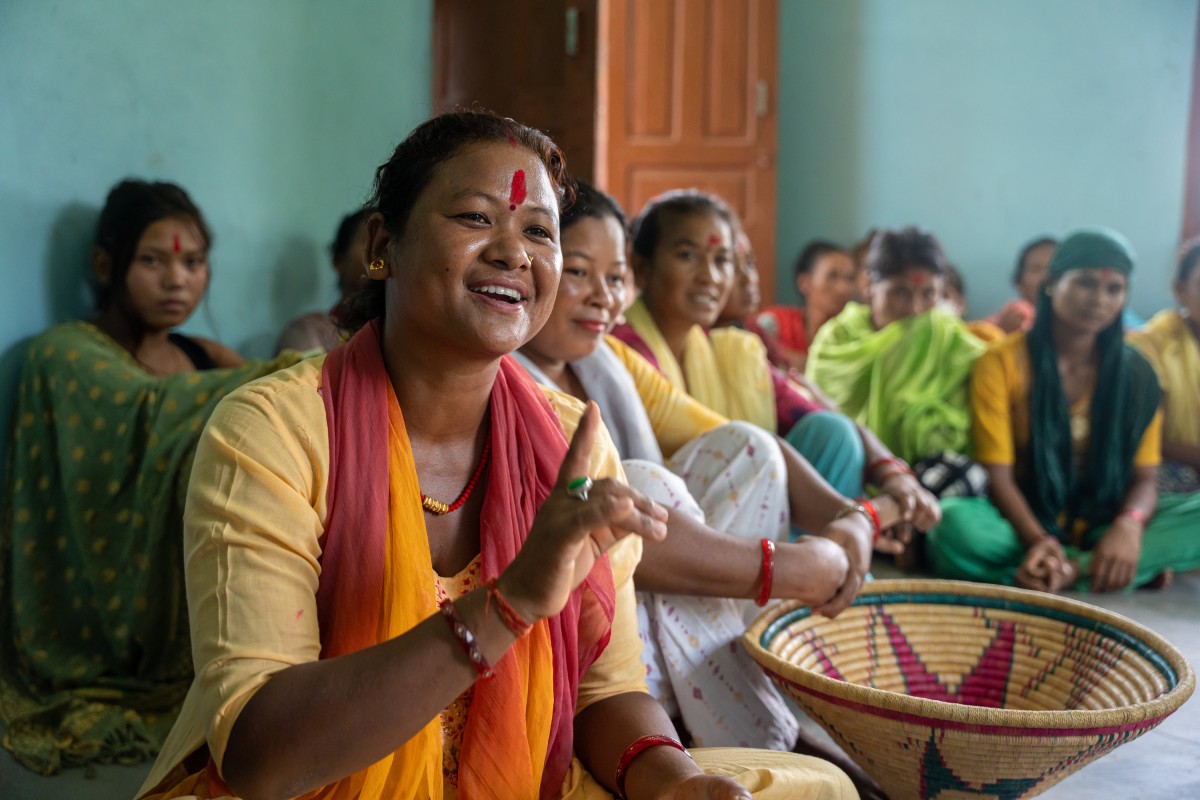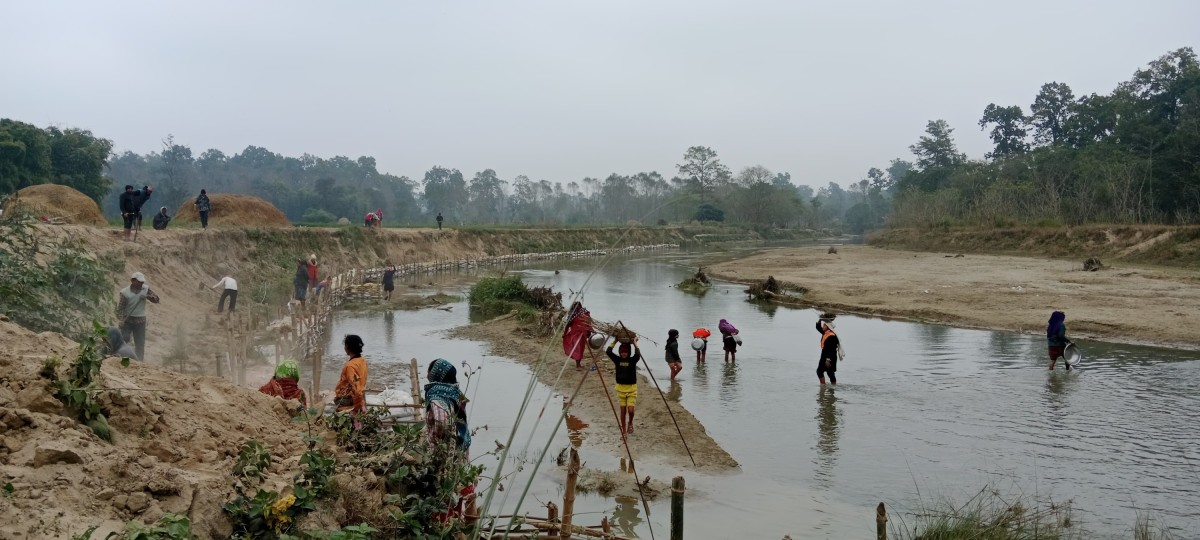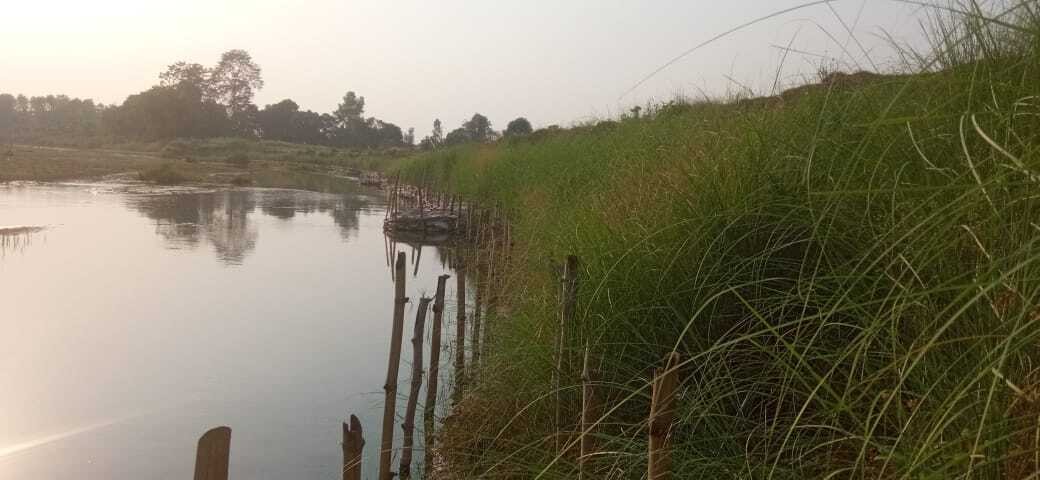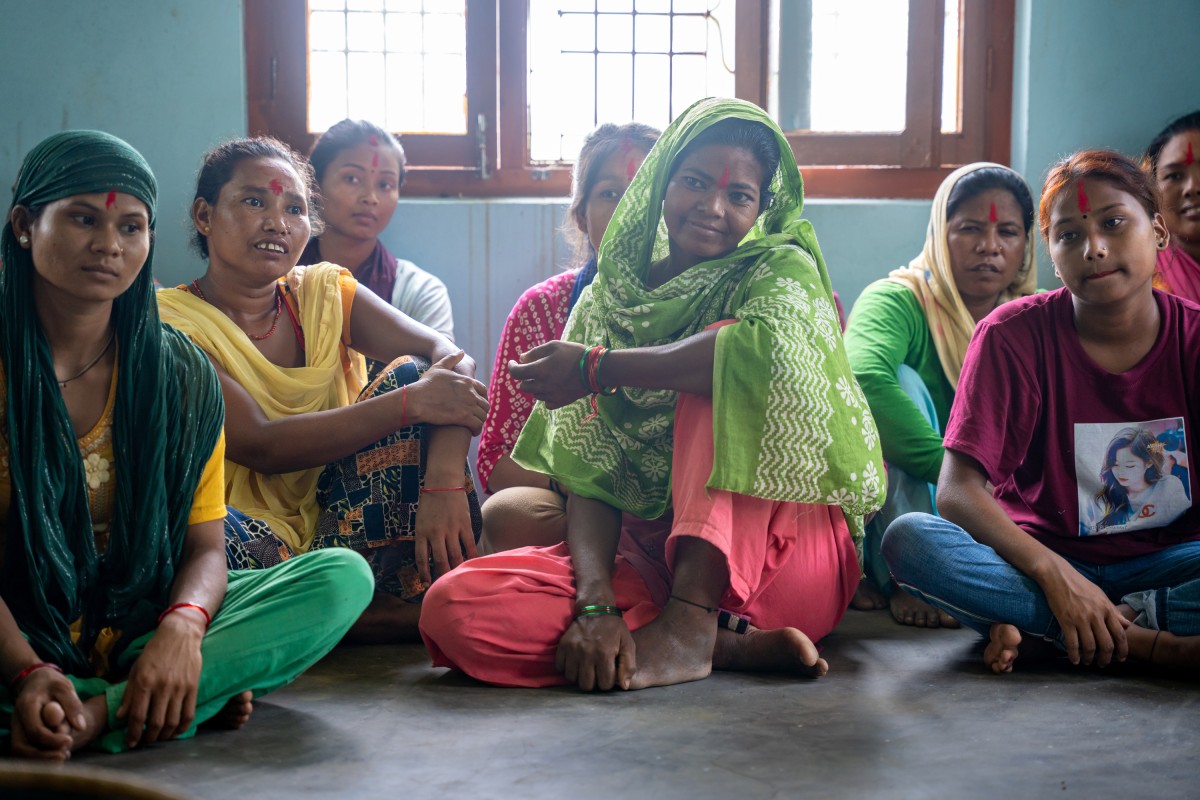How the Water Justice Fund inspired a community leader and her entire village
Nirmala Chaudhary is a member of the Mehenatisheel community group. When I spoke with Nirmala in July 2023, her story left an undeniable impression on me.
The Mehenatisheel community group, a name that speaks for itself as mehenati means ‘hardworking’ in the Nepali language, has been fighting for the survival of their village after a major flood knocked out the existing embankments alongside the river.

As a programme officer for Simavi I was engaging with nine distinct community groups in Kailali and Dang district of Nepal to document their challenges concerning water and climate change. The narratives shared with me underscored the stark reality of inadequate water access and the unpredictable shifts in climate patterns that were affecting the availability of water.
More so was the lack of climate financing that was reaching these women groups who are at the forefront of it all. Amidst these compelling stories, Nirmala's unwavering determination and commitment to safeguard her village from flooding stood out to me.

Ravaging floods
Nirmala vividly recounted the harrowing events of the 2022 flood that ravaged their lands and inundated homes. She described the fear she experienced watching the river rise relentlessly, sweeping away chunks of the existing bio-embankments—the very structures that shielded them from erosion and floods. "That land is our source of food for six months a year."
Approximately a decade prior, the entire community had united to construct bio-embankments along the river. Their collective efforts yielded structures that endured the test of time for almost nine years. Nirmala emphasized the effectiveness and cost-efficiency of these embankments compared to the concrete dikes constructed by the local government. Her vision extended beyond mere reminiscence; she aspired to rally the village once more to build bio-embankments and fortify their agricultural land.

Grant of 690 Euros
The Water Justice Fund, dedicated to support women groups and women-led community organisations with locally led climate actions granted the Mehenatisheel Women's Group, led by Nirmala, a total of 690 Euros. Through persistent lobbying and advocacy, the local government agreed to match this fund.
The new financial resources served as more than just a catalyst; they ignited an enthusiasm within these women. They mobilized the entire community, comprising 57 households, pooling their local knowledge to initiate the construction of bio-embankments.
Over a span of 15 days, these dedicated households worked tirelessly to build a 145m-long bio-embankment. Using their indigenous knowledge, they planted vetiver grass along the embankment—a strategic choice given its robust root structure, high drought tolerance, and effectiveness as an erosion control plant in warmer climates.

The power of collective action
This community-driven initiative not only addresses the immediate threats posed by floods but also exemplifies the power of collective action in the face of environmental challenges. The story of Nirmala and her community serves as a testament to the strength derived from unity and local empowerment in crafting sustainable solutions to protect vital resources.
Do you want to learn more about the Water Justice Fund?

